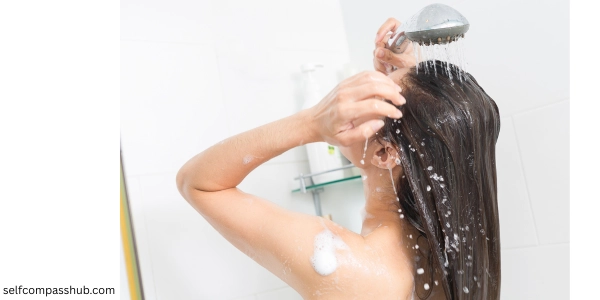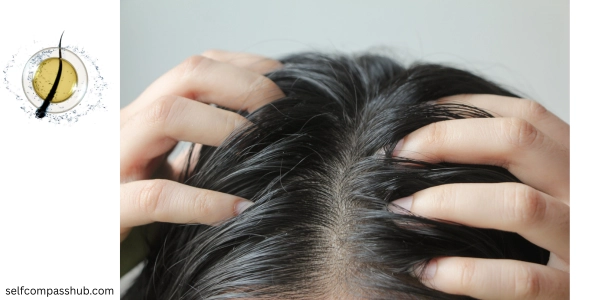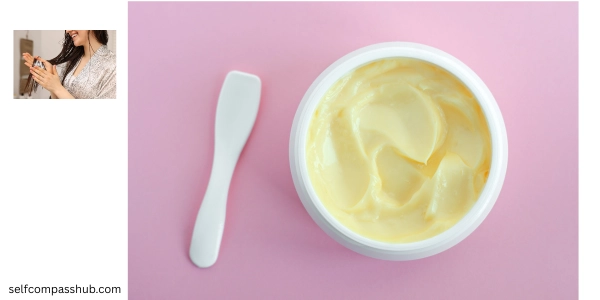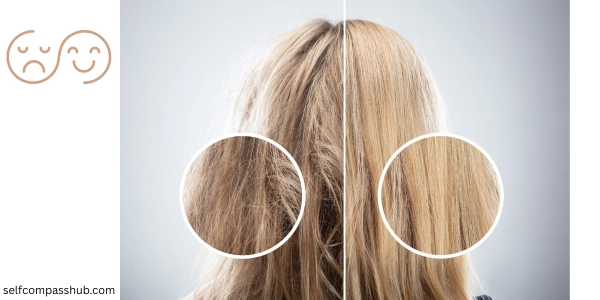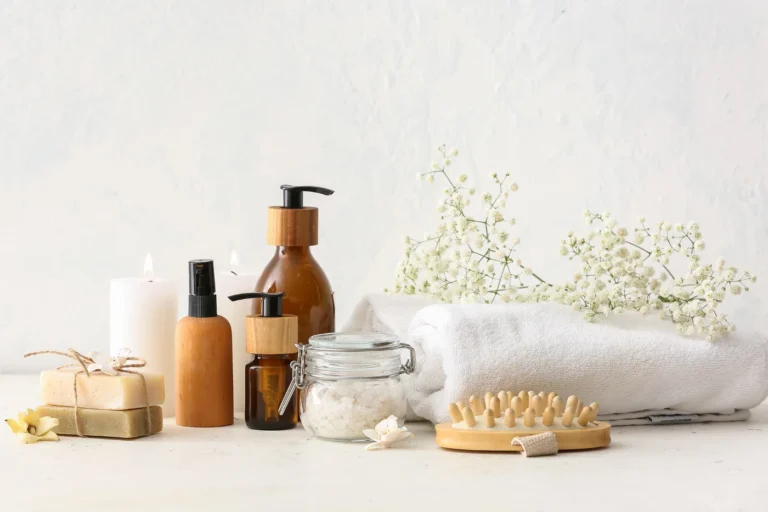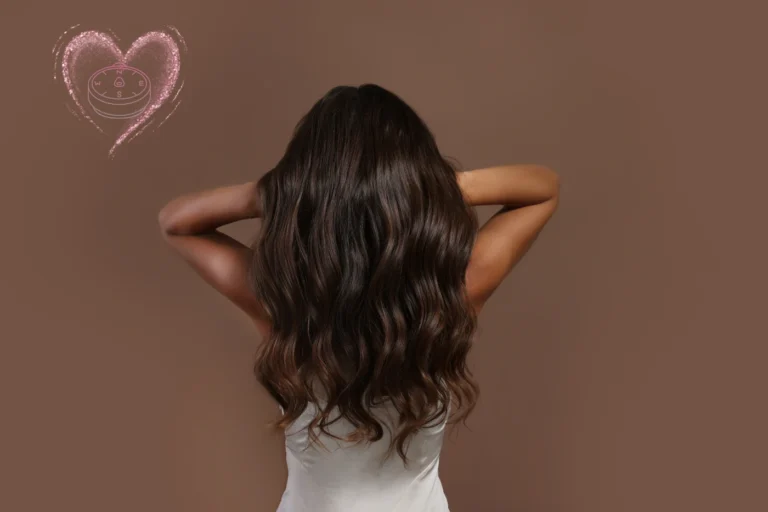Beautiful, healthy hair isn’t just about genetics – it’s about consistent care and the right routine. By following these simple, natural approaches, you can transform your hair health without harsh chemicals or expensive salon treatments.
Understanding Your Hair Type
Before diving into any routine, identify your hair type:
|
Hair Type |
Characteristics |
Special Needs |
|---|---|---|
|
Fine Hair |
Thin strands, lacks volume |
Volumizing products, minimal oils |
|
Thick Hair |
Dense strands, fuller appearance |
Deep moisturizing, heavier products |
|
Curly Hair |
Spiral or coil patterns |
Extra hydration, anti-frizz care |
|
Straight Hair |
No natural bend or curl |
Oil control, occasional texturizing |
|
Oily Scalp |
Shiny roots, frequent greasing |
Balancing products, more frequent washing |
|
Dry Scalp |
Flaky, tight feeling |
Gentle cleansing, extra moisture |
Your specific hair type will influence which parts of this routine you should emphasize.
Daily Hair Care Essentials
1. Gentle Cleansing
How often to wash: Most hair types benefit from washing 2-3 times per week rather than daily. Daily washing can strip natural oils and lead to dryness.
Temperature matters: Use lukewarm water instead of hot water, which can damage your hair cuticles and lead to frizz and breakage.
Pro Tip: Test your water temperature on your wrist before washing your hair. If it feels hot on your skin, it’s too hot for your hair!
Product recommendation: Look for sulfate-free shampoos with natural ingredients like:
- 🌿 Aloe vera
- 🥥 Coconut oil
- 🌰 Argan oil
- 🍃 Tea tree oil (for scalp issues)
2. Proper Conditioning
Conditioning is non-negotiable for all hair types. Focus conditioner on your mid-lengths and ends, avoiding the scalp if you have oily hair.
Deep conditioning: Once weekly, use a moisture mask or deep conditioner suited to your hair type. Leave it on for 15-30 minutes before rinsing thoroughly.
Natural deep conditioner recipe:
- 1 ripe avocado
- 2 tablespoons olive oil
- 1 tablespoon honey Mix thoroughly and apply to damp hair for 30 minutes before washing out.
3. Mindful Detangling
Always detangle gently, starting from the ends and working up to the roots. Use a wide-tooth comb or a brush specifically designed for wet hair to minimize breakage.
Weekly Hair Care Rituals
1. Scalp Massage
A weekly 5-minute scalp massage stimulates blood flow to hair follicles, promoting growth and distributing natural oils.
How to: Use fingertips (not nails) to make small circular motions across your entire scalp. For enhanced benefits, add a few drops of rosemary, peppermint, or lavender essential oil diluted in a carrier oil.
⏱️ Quick Guide to Scalp Massage
- Apply light to medium pressure
- Move in small circles
- Cover all areas of the scalp
- Continue for 5 minutes
- Try to relax and enjoy the process!
2. Oil Treatments
Pre-shampoo oil treatments can transform hair health:
For fine hair: Jojoba oil (lightweight) For thick or curly hair: Coconut oil or olive oil For scalp concerns: Tea tree oil mixed with coconut oil
Apply oil to dry hair, focusing on ends and mid-lengths. For deep treatment, leave overnight with a shower cap; for quick treatment, leave for 30 minutes before shampooing.
3. Clarifying Treatment
Product buildup can weigh hair down and block moisture. Once every 2-3 weeks, use:
Apple cider vinegar rinse:
- 1 part apple cider vinegar
- 3 parts water After shampooing, pour over hair and let sit for 1-2 minutes before rinsing thoroughly.
Nutrition for Healthy Hair
What you eat directly impacts hair health. Prioritize these hair-nourishing nutrients:
|
Nutrient |
Benefits for Hair |
Food Sources |
|---|---|---|
|
Protein |
Forms hair structure (keratin) |
Eggs, chicken, fish, beans, tofu |
|
Omega-3s |
Adds shine, reduces inflammation |
Salmon, flaxseeds, walnuts, chia seeds |
|
Biotin |
Strengthens, prevents breakage |
Eggs, nuts, sweet potatoes, avocados |
|
Iron |
Prevents hair loss |
Spinach, lentils, pumpkin seeds, red meat |
|
Vitamin A |
Produces scalp oils |
Sweet potatoes, carrots, kale |
|
Vitamin C |
Builds collagen, absorbs iron |
Citrus fruits, bell peppers, berries |
|
Vitamin D |
Stimulates hair follicles |
Sunlight, fatty fish, fortified foods |
|
Vitamin E |
Antioxidant, improves circulation |
Almonds, sunflower seeds, avocados |
|
Water |
Hydrates hair from within |
Aim for 8 glasses daily |
🍽️ Eat Your Way to Gorgeous Hair: A balanced plate at each meal with protein, healthy fats, and colorful vegetables will provide most of what your hair needs to thrive!
Lifestyle Factors for Hair Health
1. Heat Styling Reduction
Heat damage is cumulative. To protect your hair:
- Air-dry whenever possible
- Use heat protectant products before blow-drying or styling
- Keep tools on low or medium heat settings
- Take regular breaks from heat styling
- Invest in high-quality tools that distribute heat evenly
2. Protective Sleeping Habits
Night care makes a difference:
- Use a silk or satin pillowcase to reduce friction and breakage
- Try loose braiding for long hair to prevent tangling
- Consider a silk bonnet or scarf, especially for curly hair
3. Regular Trims
Schedule trims every 8-12 weeks to prevent split ends from traveling up the hair shaft, which can lead to breakage and thinning appearance.
Natural Hair Treatments and Masks
For Shine ✨
Honey and Yogurt Mask:
2 tablespoons plain yogurt
1 tablespoon honeyApply to damp hair for 20 minutes.
For Growth 🌱
Onion Juice Treatment:
Extract juice from one blended onion
Apply to scalp for 15 minutes before washing
Use once weekly (the smell dissipates after washing)Best applied with a cotton ball or clean makeup brush.
For Scalp Health 🌿
Aloe Vera Treatment:
Fresh aloe gel applied directly to scalp
Leave for 30 minutes before washingCan be refrigerated for a cooling, soothing effect.
For Frizz Control 🍌
Banana Smoothing Mask:
1 ripe banana
1 tablespoon olive oil
1 teaspoon honeyBlend until completely smooth (no chunks!) and apply for 30 minutes.
DIY Tip: Use these masks 1-2 times weekly for best results. Take “before” photos to track your progress!
Common Hair Mistakes to Avoid
Hair Don’ts ❌
- Brushing wet hair without proper detangling products
- Towel-drying aggressively (pat gently instead)
- Tight hairstyles that cause tension and breakage
- Overusing dry shampoo without proper cleansing
- Neglecting scalp health (the foundation of hair growth)
- Using too many styling products that cause buildup
- Washing with very hot water that strips natural oils
Hair Dos ✅
- Use a wide-tooth comb on wet hair, starting from ends
- Gently squeeze out water with a microfiber towel
- Wear loose styles and vary your hairstyle daily
- Clarify regularly to remove product buildup
- Treat your scalp to weekly massages and exfoliation
- Use minimal styling products applied properly
- Rinse with cool water to seal the cuticle and add shine
Seasonal Hair Care Adjustments
Summer
- Use UV protection products
- Rinse hair after swimming
- Increase hydration due to sun exposure
Winter
- Deep condition more frequently
- Protect from static with leave-in products
- Avoid going outside with wet hair
Your 30-Day Hair Transformation Plan
Week 1: Foundation
- Identify your hair type
- Switch to sulfate-free shampoo
- Begin 2-3x weekly washing schedule
- Start daily gentle brushing routine
Week 2: Nutrition & Hydration
- Increase water intake to 8 glasses daily
- Add one hair-healthy food to each meal
- Begin weekly deep conditioning
- Try your first DIY hair mask
Week 3: Treatment & Protection
- Implement weekly scalp massage
- Start using heat protectant (if using heat tools)
- Try protective hairstyles or nighttime protection
- Assess improvements and adjust routine
Week 4: Refinement
- Get a trim to remove split ends
- Solidify your customized routine
- Take “after” photos to compare
- Celebrate your healthier hair!
final thoughts
Healthy hair isn’t achieved overnight. Consistency is key when implementing these natural care strategies. Start by incorporating one or two new practices weekly, and within months, you’ll notice significantly improved strength, shine, and growth.
Remember that your hair is as unique as you are – pay attention to how it responds to different treatments and adjust accordingly. What works for one person might not work for another, so don’t be afraid to experiment and create a personalized routine that addresses your specific hair needs.
With patience and these natural approaches, you’ll be on your way to your healthiest hair ever!
Share Your Journey: Take before and after photos to track your progress, and consider sharing your results to inspire others on their healthy hair journey!
Disclaimer: If you’re experiencing significant hair loss, excessive breakage, or scalp conditions, consult with a dermatologist or trichologist for professional guidance.

